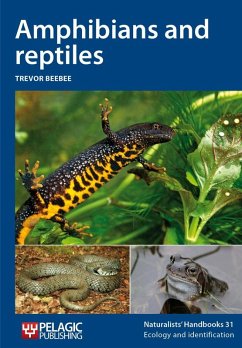
The Common Objects of the Country (eBook, ePUB)

PAYBACK Punkte
0 °P sammeln!
In "The Common Objects of the Country," J. G. Wood presents a compelling exploration of the natural world, focusing on the familiar flora and fauna commonly found in the English countryside. Written in a Victorian prose style that marries scientific observation with poetic flair, the book exhibits an intricate balance of descriptive narrative and empirical detail. Wood's keen observations invite readers into a deeper appreciation of nature, echoing the period's growing interest in natural history and the Victorian quest for knowledge that fueled a burgeoning ecological awareness amidst rapid i...
In "The Common Objects of the Country," J. G. Wood presents a compelling exploration of the natural world, focusing on the familiar flora and fauna commonly found in the English countryside. Written in a Victorian prose style that marries scientific observation with poetic flair, the book exhibits an intricate balance of descriptive narrative and empirical detail. Wood's keen observations invite readers into a deeper appreciation of nature, echoing the period's growing interest in natural history and the Victorian quest for knowledge that fueled a burgeoning ecological awareness amidst rapid industrial change. J. G. Wood was a noted naturalist and author whose life experiences fueled his passion for the environment. His background in science and his role as a curator of natural history inform the text, imbuing it with authenticity and enthusiasm. Wood's unique approach underscores the importance of local ecology at a time when urbanization risked alienating society from its natural roots. He sought to educate and inspire readers, fostering a sense of wonder and responsibility toward their surroundings. For those looking to rekindle their connection with nature or expand their understanding of rural ecosystems, "The Common Objects of the Country" is an indispensable read. This book is not merely a catalog of species, but an invitation to observe and cherish the natural world anew, making it relevant for both nature enthusiasts and those curious about historical perspectives on ecology.
Dieser Download kann aus rechtlichen Gründen nur mit Rechnungsadresse in A, B, BG, CY, CZ, D, DK, EW, E, FIN, F, GR, H, IRL, I, LT, L, LR, M, NL, PL, P, R, S, SLO, SK ausgeliefert werden.













